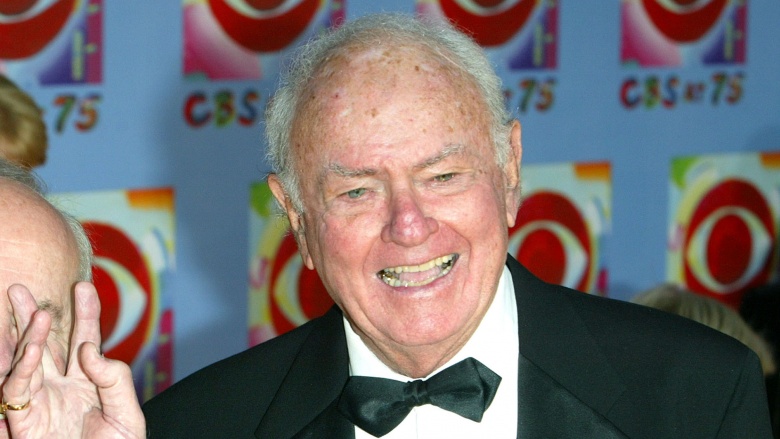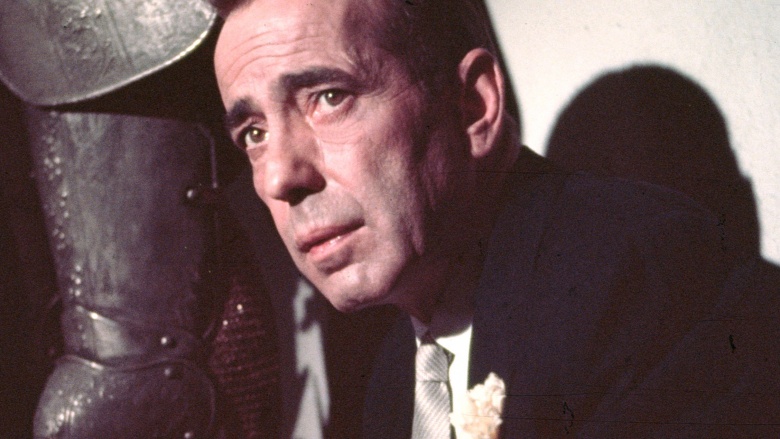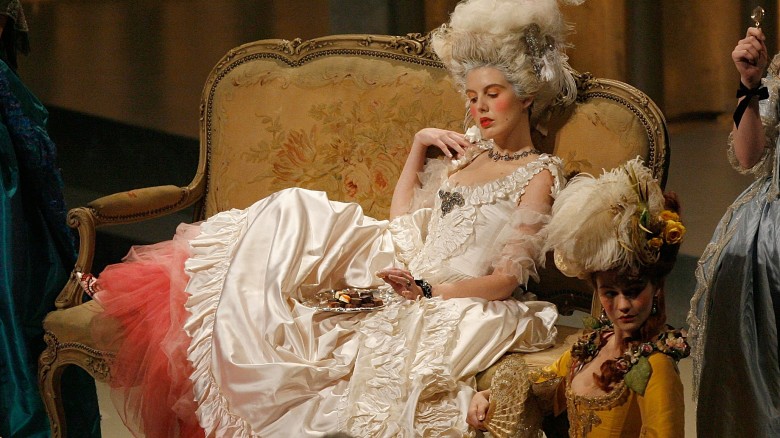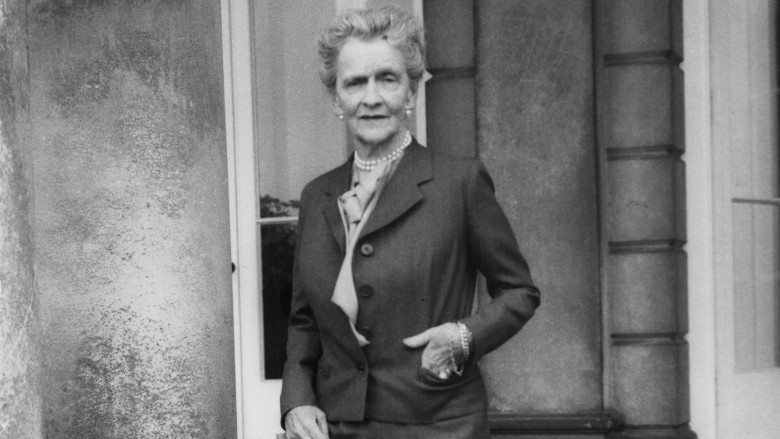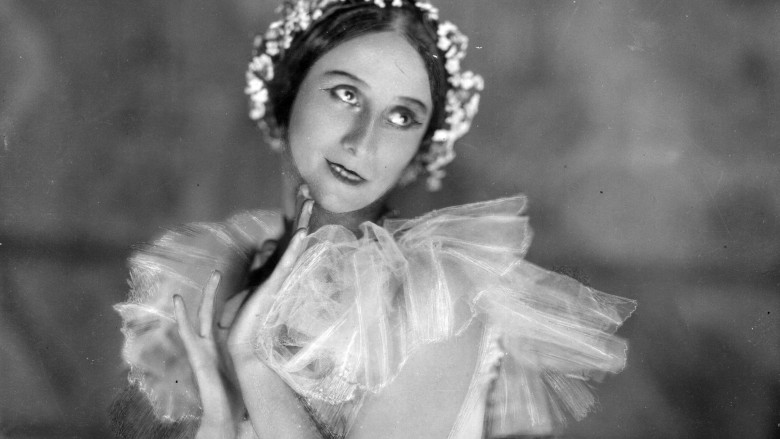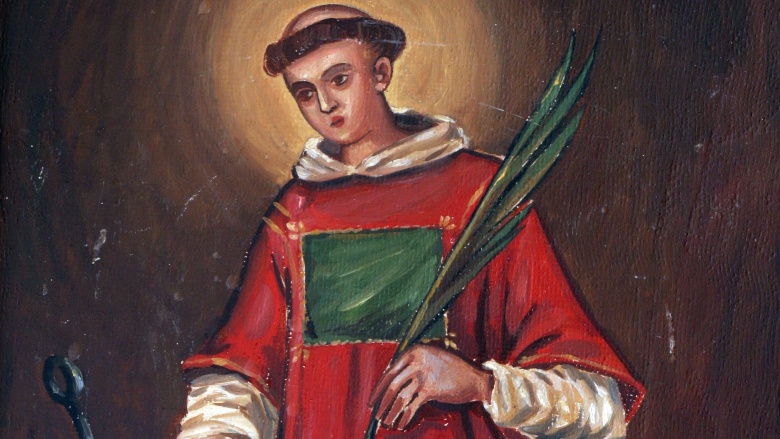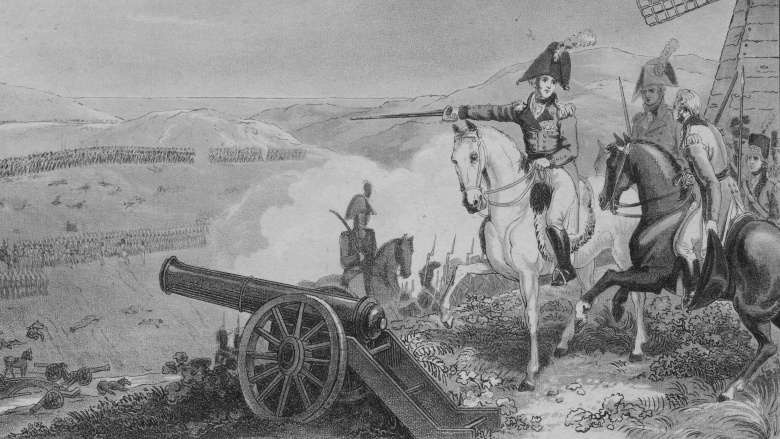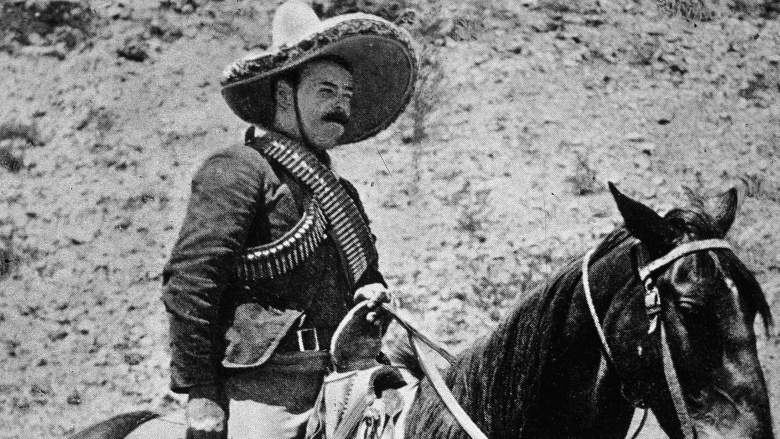Famous People Who Said Hysterical Things Before Death
We may receive a commission on purchases made from links.
Much has been made about the final utterances of acclaimed actors, writers, comedians, and public figures, because we expect the very best from famous people whose careers were built on wit, charm, and genius, even while they're knocking on death's door. Maybe a politician or soldier's last words perfectly encapsulate their life's work. Sometimes, when a comedian or actor signs off for the last time, they do so with a brilliant one-liner. Here are some of the best of the last lines by famous people.
Winston Churchill
Winston Churchill's wartime correspondences with Joseph Stalin and Franklin Roosevelt were particularly thorough and pragmatic, but always well-written. In one letter to Roosevelt, dated May 15, 1940, Churchill writes, "Up to the present, Hitler is working with specialized units in tanks and air. The small countries are simply smashed up, one by one, like matchwood. We must expect, though it is not yet certain, that Mussolini will hurry in to share the loot of civilization." There is this sense in his writing that, in spite of the horrors of World War II, Churchill felt uniquely suited for his role as leader.
By the end of the war, Churchill had already lived one of the most dynamic and interesting lives in modern memory. He would go on to win the Nobel Prize in Literature, and was named the Greatest Briton of all time by a 2002 poll. Before slipping into a coma and dying at age 90 in 1965, Churchill uttered these shocking, and perhaps sarcastic, last words: "I'm bored with it all." Hopefully for his sake, the afterlife is more interesting than his post-war life.
Harvey Korman
The legendary Harvey Korman, well-known for his roles in "Trail of the Pink Panther," "Blazing Saddles," "History of the World, Part I," and other classic comedies. It sounds like Korman was just as genuinely funny, hapless, and animated in life as well. When Korman died in 2008 at the age of 81, many of his costars and collaborators were quick to comment. "A world without Harvey Korman — it's a more serious world," Mel Brooks told the Associated Press. "It was very dangerous for me to work with him because if our eyes met we'd crash to floor in comic ecstasy. It was comedy heaven to make Harvey Korman laugh."
But before he passed away at the UCLA Medical Center, Korman left us with one more great line. According to Maria Pritchard's book "I Told You I Was Ill: Famous Last Words and Astonishing Epitaphs," Korman's departing words were, "Tape Seinfeld for me." It's OK, Harvey — we're sure Heaven has everything on-demand.
Groucho Marx
For somebody like Groucho Marx, who spent nearly his entire life cracking jokes, the pressure to come up with something clever to say on your deathbed must have been unbearable. Whether conspiring with his brothers on film or ribbing guests as the host of "You Bet Your Life," Groucho was already a legend before his death. And true to a legend, he's purported to have almost as many last words as cats have lives.
Some sources report that Groucho's last line was "Either I'm dead, or my watch has stopped." That would have been a good one, but it's probably not true. Others say Groucho passed away saying, "Die, my dear? Why that's the last thing I'll do!" That's an awesome quip, but that likely wasn't it either. According to William B. Brahms' book "Last Words of Notable People: Final Words of More than 3500 Noteworthy People Throughout History," Groucho's actual last words were just as funny, but even sweeter, than the others. In one last gift to his fans, he said simply, "This is no way to live."
Humphrey Bogart
Humphrey Bogart was every bit the fly-by-night, well-dressed cad he played onscreen in films like "The Big Sleep" or "The Maltese Falcon." Married four times, every one of his wives was a beautiful actress. When he died, still married to Lauren Bacall — one of the greatest, and most stunning, actresses in Hollywood history — he was only 57. A lifetime of drinking and smoking had caught up with the actor, whose famous line from "Casablanca," "Of all the gin joints, in all the towns, in all the world, she walks into mine," is a perfect summation of his life. He died of esophageal cancer brought on by his vices.
It's occasionally reported that Bogart's last words were, "I should never have switched from Scotch to Martinis." That seems almost too fitting to be true ... and that's because it's not true. The phrase actually comes from a Nicolas Freeling novel called "What are the Bugles Blowing For?" and has nothing to do with Bogart. In reality, the actor's final adieu was probably, "Goodbye, Kid. Hurry back." Bogart was talking to his wife, Lauren Bacall, who was leaving his side to pick up their children. The truth in this case is something less hilarious, but much sweeter.
Niccolo Machiavelli
Niccolo Machiavelli's book "The Prince" is regarded as one of the most important works to come out of the Renaissance, and Machiavelli, as a result, is considered by many to be the father of political science. In addition, at the beginning of the 16th century, Machiavelli was put in charge of the Florentine militia. He held several diplomatic positions over his lifetime, and his reign was marked with the same "ends justify the means" style of ruling he celebrated in "The Prince."
He died in 1527 at the age of 58. His parting words are unsurprisingly clever, given his status as a man of words and of the world, though uncharacteristically his final words were quite funny. He said, "I desire to go to Hell and not to Heaven. In the former I shall enjoy the company of popes, kings and princes, while in the latter are only beggars, monks and apostles." So now you know where Billy Joel got the idea that "the sinners are much more fun."
Marie Antoinette
Marie Antoinette, famously misquoted for the callous "let them eat cake" line, supposedly the reason her popularity in 1700s France declined to the point where they up and killed her, wasn't quite the cold jerk history has made her out to be. Scholars say that it might have actually been said by an earlier noble, Marie-Therese of Spain, who was married to King Louis XIV. In fact, Jean-Jacques Rousseau, in his 1766 book "Confessions," referred to a "great princess" who "on being informed that the country people had no bread, replied, 'Then let them eat pastry!'" Considering Marie Antoinette was born in 1755, it is likely that the mean quote was misattributed because of the revolutionary hatred toward the nobility. Either that, or she was just the worst 10-year-old ever.
According to Antonia Fraser's biography, "Marie Antoinette: The Journey," the young queen was the victim of her cruel husband's activities, and a climate of unrest that demanded her head as sacrifice for Louis XVI's crimes. Her hair was cut off, her hands were bound and she, after a bout of stomach urgency, was taken to Madame Guillotine via cart. According to eyewitness accounts described by Fraser, and by Tudor and European royal historian Claire Ridgway, Marie Antoinette paused briefly to apologize to her executioner, for she had stepped on his foot. Her final words were, "Pardon me, Sir, I meant not to do it."
He, um, did not pardon her. Bye-bye, head.
Oscar Wilde
Known primarily as the author of such great works as "The Importance of Being Earnest and Salome," Oscar Wilde is also know for a much sadder chapter in his life: being sent to jail for the crime of being a homosexual. Or as they called it back in the late-1800s, the "love that dare not speak its name."
When Wilde was released two years later, he was weak and spent his final years drinking, poor, and in relative obscurity. His last days were, to be simplistic, in stark contrast to the vibrancy and humor of his pre-prison years. However, just before dying of meningitis at 46, Wilde made a final documented quip, proving that in spite of his situation, the author had never completely lost his wit. He remarked, "My wallpaper and I are fighting a duel to the death. Either the wallpaper goes, or I do." By now, we're guessing both have gone.
Lady Nancy Astor
Lady Nancy Astor was a fascinating woman. Just a regular girl from Danville, Virginia, she attended finishing school, met a socialite, married him, and the two had a son. That didn't work out (the husband, not the son), so she got divorced and moved to England with her son and sister. She quickly became the toast of the town, being both beautiful and witty, and she soon met Waldorf Astor (son of a Viscount) and married him. Over the years, they would have five children together, Waldorf would become the new Viscount, and Nancy would become a viscountess. Once that happened, Lady Nancy didn't waste any time — she campaigned for her husband's seat in the House of Commons and became the first female ever elected to Parliament.
She had a famous wit, enormous political influence, and even hobnobbed with Winston Churchill (though their famous battles of wit were much exaggerated). Her popularity did eventually decrease, mainly because she was kinda xenophobic and said some things that were culturally insensitive even for the '60s. She died in 1964, waking up briefly to find her children around her bed — she reacted by asking her final question ever: "Jakie, is it my birthday, or am I dying?" The answer was the latter, but a witty lady never misses a chance to get in a good bon mot before running off with the Reaper.
Anna Pavlova
You may not be familiar with the name Anna Pavlova, unless you studied Russian ballet for 14 years and dreamed of communicating beauty into dance the way she did. Or, if you read a 2012 article by Rupert Christiansen, you know that she was super-famous after World War I. See, after studying at the Imperial Ballet School, she quickly made her way to critical acclaim — after she danced the lead in "The Dying Swan" and the challenging role of "Giselle," she became a prima ballerina. In 1911, she formed her own ballet company and toured all over the world until 1930, when she became ill with pneumonia and pleurisy.
Though she had a residence in Hampstead, London (where, by the way, she had a collection of exotic animals, including two swans), she took a Christmas vacation and decided to return to The Hague to start dancing again. Her train was in an accident and, while she didn't get hurt, she stood in thin silk pajamas and a thin jacket for 12 hours waiting for help to arrive. She finally arrived in Holland, but she was already sick. On January 31, 1931, she died, with her last words being, "Prepare my swan costume." The next night, when her company performed and it came time for "The Dying Swan" solo, the curtain opened to an empty stage, out of remembrance for her. See what happens when you study history, kids? Ugly crying. That's what happens.
Henrik Ibsen
The playwright Henrik Ibsen was most famous for his play "A Doll's House," which poked holes in the traditional roles men and women inhabited during the 19th century, along with the play "Hedda Gabler," which cemented Ibsen's place among the best playwrights in history. So it makes perfect sense that his final utterance would be as quick-witted and clever as anything he put to paper, or allowed to be said on stage.
After several strokes, Ibsen died at his home in Oslo in 1906. By then, the playwright had achieved great success, and was visited by many until his last breath. On the day before his death, one visitor asked the nurse if Ibsen was feeling any better. She said that he was, to which Ibsen famously uttered, "On the contrary!" before passing away the next morning. He knew.
Lawrence of Rome
Lawrence of Rome died a martyr, burned to death on the orders of Emperor Valerian. He had served as one of the seven deacons of Rome under Pope Sixtus II, but around A.D. 250, Roman authorities called for all Christians to turn over their wealth to the state. As a big FU to the Emperor, Lawrence distributed as much of the church's money and goods to the poor and suffering as he could. A miffed Valerian sentenced Lawrence to die by fire for his insubordination.
Lawrence would become the patron saint of many things, including miners and tanners. He is also the patron saint of firefighters (it sounds like he needed one), cooks, and comedians. The last one is due to the circumstances in which he died, and what he apparently said while doing so. One perhaps-apocryphal legend reports that while Lawrence was burning, he remarked, "Turn me over. I'm done on this side." If he indeed managed to get roasted that severely without losing consciousness, he should also be the patron saint of tough-as-nails badasses.
Sir William Erskine, 2nd Baronet
Sir William Erskine, 2nd Baronet, was an honorable major-general in the British Army who later served in Parliament. Despite being a well-decorated soldier, having served during the French Revolutionary Wars and under the Duke of Wellington in the Napoleonic Wars, Erskine is remembered primarily for how he died, rather than how he lived.
Years of service, and likely an undiagnosed mental disorder, caused Erskine to unravel in his final years. Around 1812, he was released from duty and declared insane — a year later, Erskine committed suicide in Lisbon, Portugal, by jumping off a balcony. Though as reports have it, he might not have really wanted to. According to Terry Breverton's book "Immortal Last Words," as well as many other sources, Erskine was heard saying just as he jumped, "Now why did I do that?" A line like that might be the darkest of all dark humor.
Pancho Villa
The mythos of Pancho Villa is half-fact and half-creation. Villa truly was a heroic soldier of the Mexican Revolution, whose dedication led to the toppling of an oppressive regime. However, many of the facts about his early life are disputed. Pancho became a bandit, was apprehended, forced to join Federal Army, then killed an officer and stole his horse. Or so the (Pancho-endorsed) story goes.
Villa's official career, meanwhile, is marked by great victories in battle and larger-than-life military campaigns. In 1923, Villa was killed with his associates while driving in Parral, Mexico. Seven gunmen sprayed bullets into the car and struck Villa in the head and chest. By most reports, he died instantly. But like much Villa's life, this is also disputed, with some outlets reporting Villa managed to utter, "Don't let it end like this. Tell them I said something important." before finally passing away. It wouldn't make sense for a guy who built himself into a near-mythical figure to go out silently, after all.


